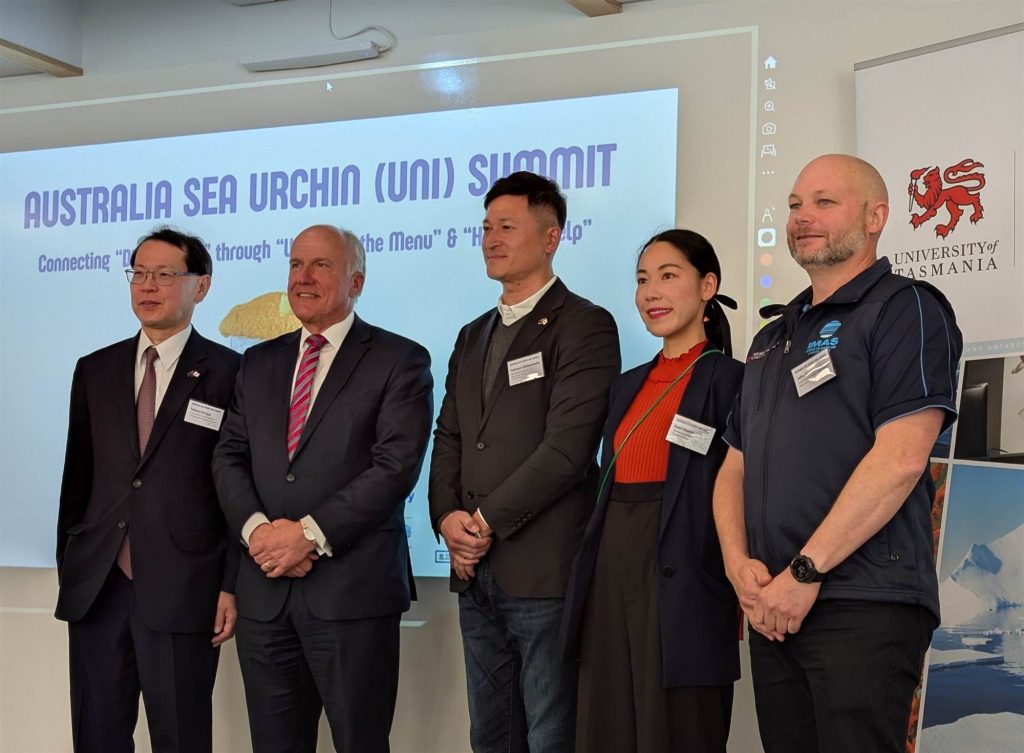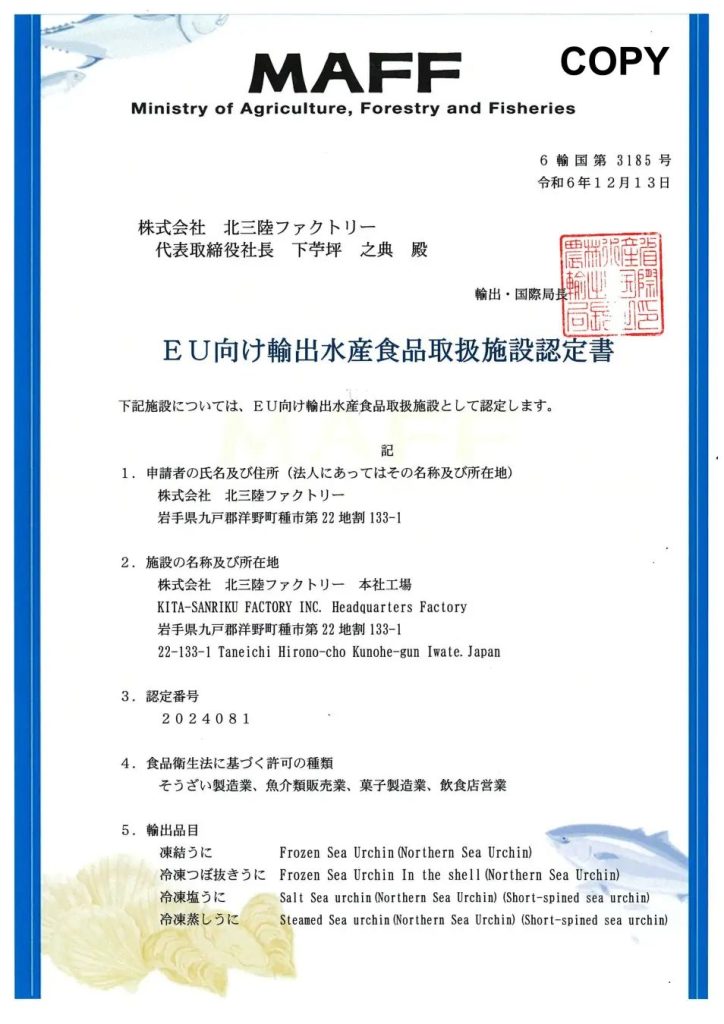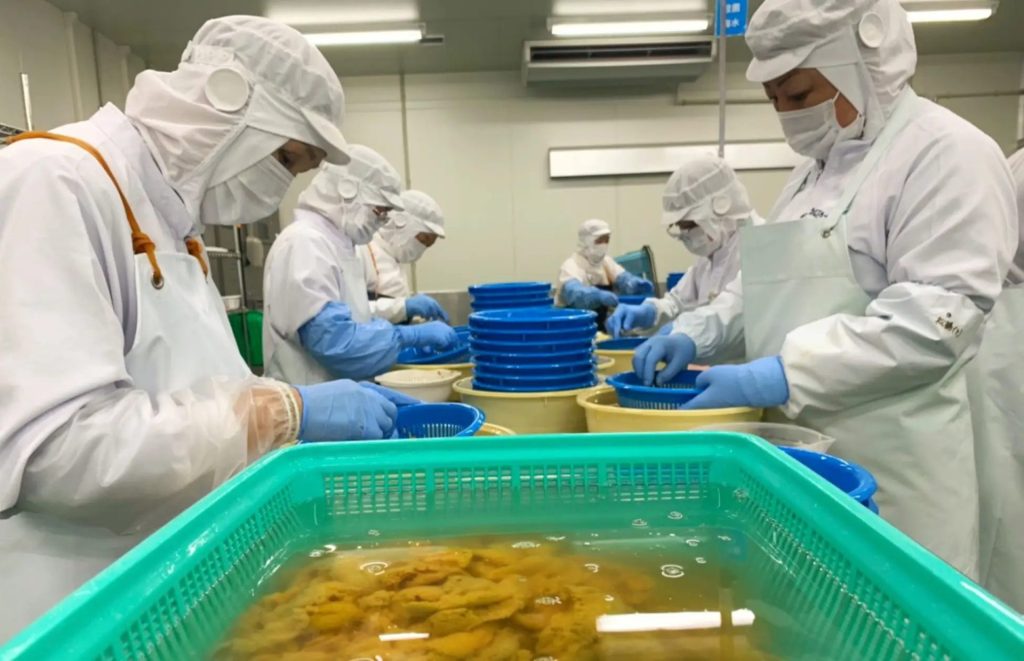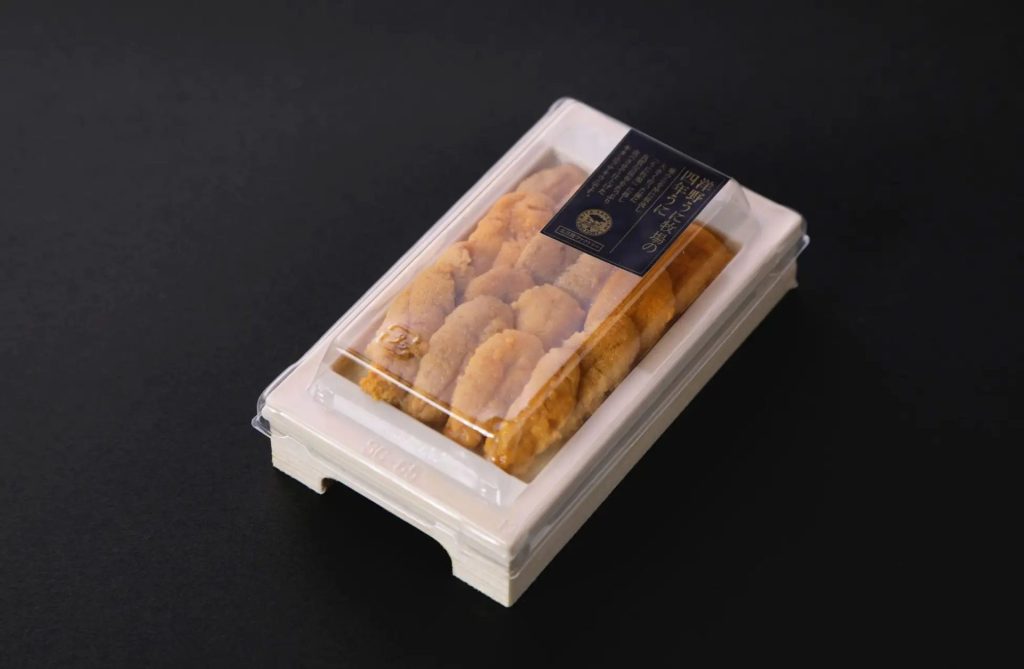HOBART, TASMANIA – The inaugural Australia UNI (Sea Urchin) Summit, held at the Salamanca Inn and Mures Tasmania over 21 and 22 May, showcased the power of collaboration between Japan and Australia in tackling shared marine challenges and advancing sustainable industry innovation.

Jointly organized by Kita-Sanriku Factory Inc., General Incorporated Association moova, and the University of Tasmania, the summit welcomed around 60 participants—including scientists, seafood industry leaders, chefs, and policymakers from both countries. The program focused on restoring Tasmania’s kelp forests—damaged in part by overpopulated long-spined sea urchins—and unlocking the economic potential of Australian sea urchins for both domestic and international markets.
This landmark event was made possible through support from the Australia–Japan Foundation (Department of Foreign Affairs and Trade) and the Department of Natural Resources and Environment Tasmania, reflecting the shared commitment of both governments to environmental sustainability and economic resilience.

Yukinori Shitautsubo, Representative Director of Kita-Sanriku Factory Inc., highlighted the value of international cooperation:
“This summit symbolizes the strength of the Australia–Japan partnership in addressing environmental challenges and creating new economic opportunities. Together, we aim to restore marine ecosystems and build industries that benefit both nations.”
Key Highlights
- Restoring Marine Ecosystems: Coordinated efforts to rehabilitate Tasmania’s iconic kelp forests, vital for biodiversity and carbon sequestration.
- Economic Opportunities: Strategies to grow sustainable industries based on Tasmanian sea urchins, supported by bilateral expertise and market insights.
- Cross-Cultural Collaboration: Strengthening ties between Japanese and Australian researchers, industry leaders, and communities through shared knowledge and joint initiatives.
Dr. John Keane, Wild Fisheries Program Leader at IMAS, emphasized the broader significance of the summit:
“This summit demonstrates how Japan and Australia can collaborate to address complex environmental issues while also fostering economic growth and cross-cultural relationships. It’s a testament to what can be achieved through partnership.”
The summit also paved the way for pilot projects focused on kelp forest restoration and sea urchin management, integrating scientific knowledge and industry innovation from both countries.
Mikiko Makka, Managing Director of moova, added:
“By bringing together leaders from Japan and Australia, we are advancing not just marine sustainability but also meaningful, long-term relationships. These partnerships are essential to achieving shared goals and mutual prosperity.”
Acknowledgments
The organizers extend their sincere thanks to the Australia–Japan Foundation for fostering bilateral collaboration and to the Tasmanian Government for its ongoing leadership in sustainable marine initiatives.
About the Organizers
- Kita-Sanriku Factory Inc.: A leader in sustainable aquaculture from Japan, dedicated to ecological restoration and marine resource utilization.
- General Incorporated Association moova: An organization promoting sustainability, innovation, and cultural exchange on the marine environment.
- University of Tasmania’s Institute for Marine and Antarctic Studies (IMAS): A globally recognized research institute specializing in marine ecosystems and environmental science.





